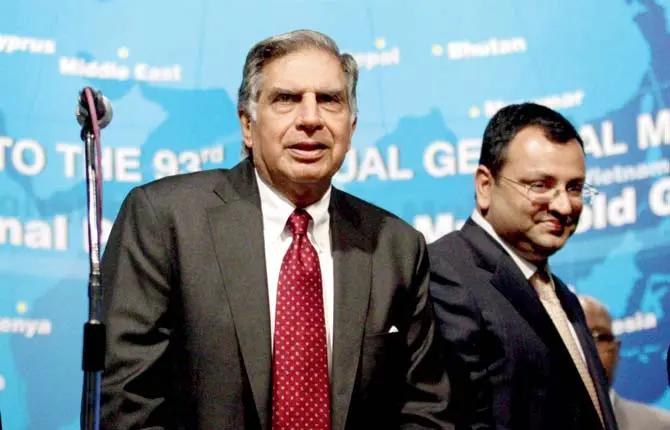In his biography Ratan Tata: A Life, author Thomas Mathew reveals that Ratan Tata’s “no comments” response about Cyrus Mistry’s intentions regarding the Tata Group conveyed more than words. The book discusses Mistry’s leadership, his ties with the Shapoorji Pallonji Group, and the reasons behind his 2016 replacement as Chairman.

File Pic
According to Thomas Mathew, the author of the biography Ratan Tata: A Life, Ratan Tata's "no comments" response to questions about whether he shared the concerns of some Tata Group veterans—who believed Cyrus Mistry was trying to break up the conglomerate—was more revealing than any statement he could have made.
ADVERTISEMENT
As per PTI, Tata had fully supported Mistry as his successor in 2012, despite harbouring doubts about his suitability after the first year of their ‘parallel running’ arrangement. However, Mistry’s removal as Chairman of Tata Sons in 2016 was primarily due to "ethical and moral issues", as well as performance concerns, according to Mathew’s account.
In the biography, some senior Tata Group veterans are quoted expressing their concerns that Mistry’s leadership style might have threatened the unity of the conglomerate, especially considering the past record of Shapoorji Pallonji Group’s acquisition of shares in Tata Sons. The group gradually increased its stake in Tata Sons to around 18%, a move that many insiders viewed unfavourably, particularly given its clandestine nature. J.R.D. Tata, the legendary former head of the group, had been uncomfortable with the way shares were acquired, as it exploited the weak moments of some family members.
Mathew explained that during Tata’s tenure, directors of Tata Sons were also on the boards of key Tata companies, providing a strong link between the trusts, Tata Sons, and the operating companies. However, under Mistry, this practice was largely abandoned, with Mistry placing directors mainly on two boards, creating unease among the veterans. They feared that this could be a sign that Mistry intended to dismantle the group, although, as per Mathew, these concerns were never put to the test.
Asked whether Tata shared these concerns, Mathew said that Tata, being a reserved individual, never publicly commented on it. But his absence of comment spoke volumes. “I asked Mr Tata, ‘Do you think this is true?’ and he simply replied ‘no comments’. To me, that response was more thunderous than any direct statement,” Mathew revealed.
Despite the controversies surrounding Mistry’s leadership, Mathew asserted that his removal was due to a combination of ethical, moral, and performance-related reasons. Tata had supported Mistry wholeheartedly when he was appointed in 2011 after a global search, but over time, tensions arose. One key issue was Mistry’s failure to sever ties with the Shapoorji Pallonji Group, despite it being one of Tata’s key stipulations. Furthermore, Tata was dissatisfied with Mistry’s performance and its impact on the group's relationship with shareholders, especially as it led to limited dividends, which in turn affected the funds available for philanthropic activities by the Tata Trusts.
Mathew further recalled how Tata offered Mistry the option to step down "for personal reasons", but this request was rejected. Tata's decision to replace Mistry was painful, Mathew noted, but he ultimately felt it was necessary to safeguard the future of the group.
In response to a question about why Ratan Tata’s half-brother, Noel Tata, was never considered as a successor, Mathew said that although Ratan Tata was very fond of Noel, he felt that Noel lacked the experience needed to lead a vast conglomerate like the Tata Group, despite acknowledging his capabilities.
As per PTI, this insight into the dramatic events that unfolded during Mistry’s tenure as Chairman of Tata Sons highlights the deep divisions within the company and the larger-than-life personality of Ratan Tata in guiding the future of the group.
(With inputs from PTI)
 Subscribe today by clicking the link and stay updated with the latest news!" Click here!
Subscribe today by clicking the link and stay updated with the latest news!" Click here!







